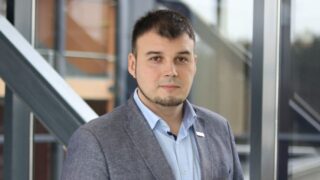Members

Head of the research team
Publications
Projects
Recognitions
Included in Stanford University and Elsevier’s list of the Top 2% Most Influential Scientists Worldwide (Single Year) based on citation metrics (2024 edition)
Included in Stanford University and Elsevier’s list of the Top 2% Most Influential Scientists Worldwide (Single Year) based on citation metrics (2023 edition)
Technical Student of the Year, Estonian Association of Engineers